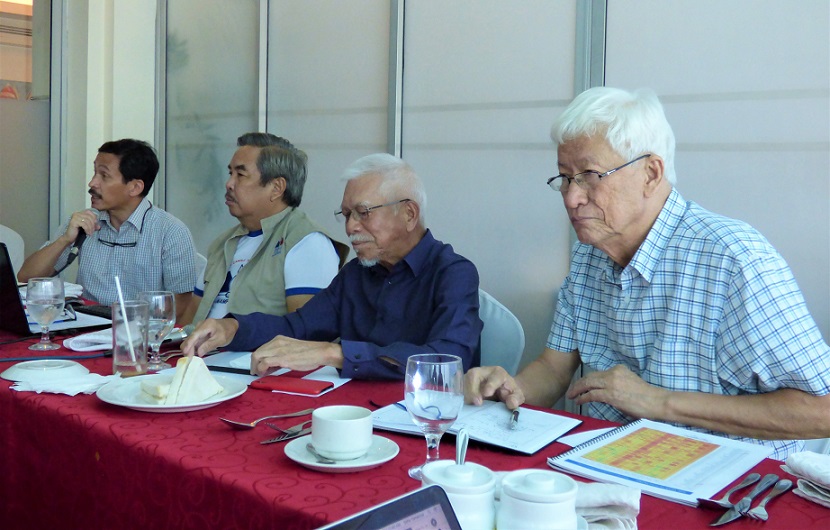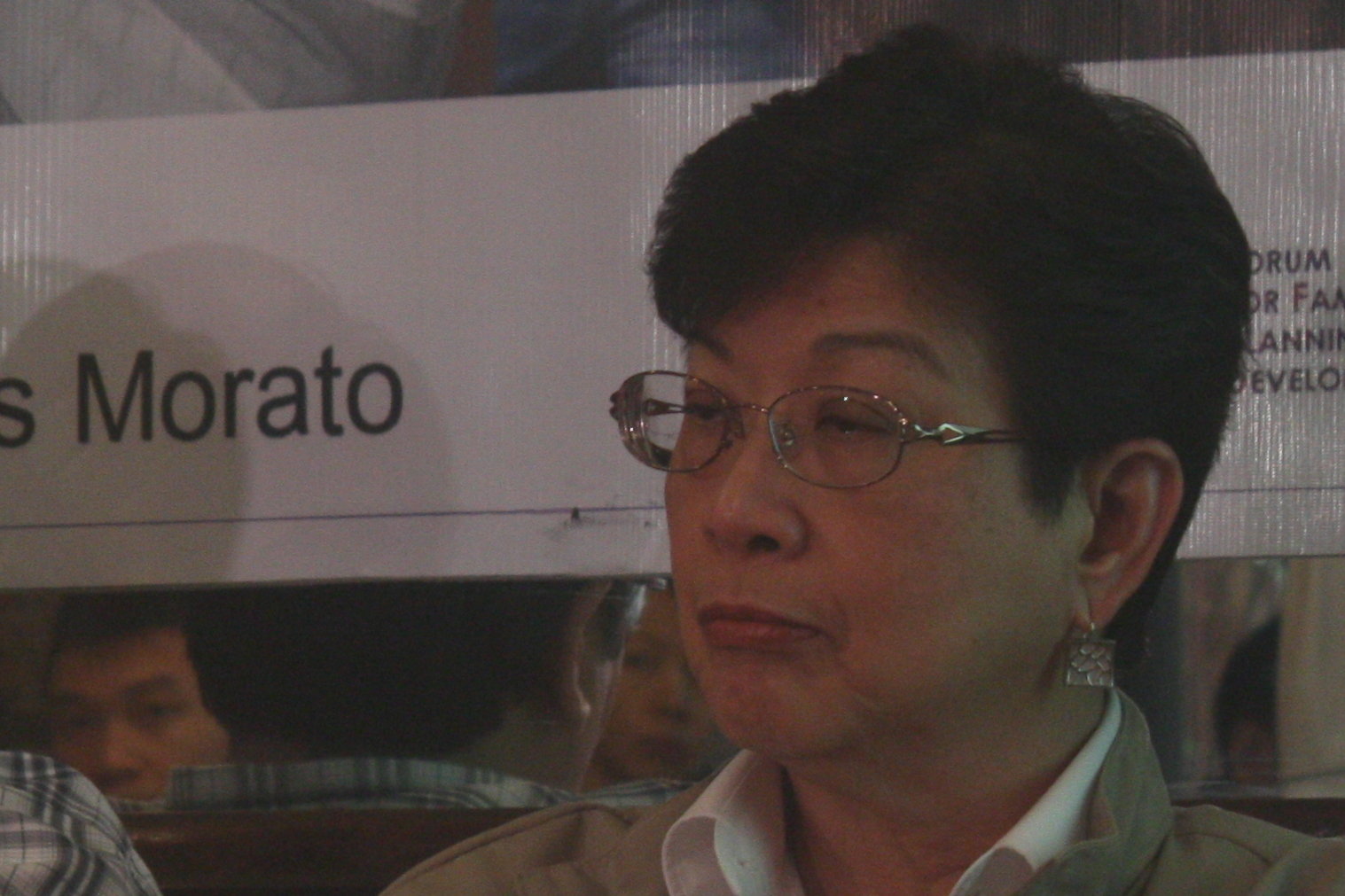UPDATE:
NAMFREL withdrew as civil society observer in the 2019 mid-term elections’ Random Manual Audit April 30 because they were denied access to documents they were asking for, Comelec Commissioner Louie de Guia said.
 Doing their best for a clean and transparent elections. From left to right, NAMFREL Secretary-General Eric Alvia, NAMFREL Council Member Lito Averia, NAMFREL National Chairman Gus Lagman and NAMFREL National Council Member Dammy Magbual. Photo by VJ Bacungan.
Doing their best for a clean and transparent elections. From left to right, NAMFREL Secretary-General Eric Alvia, NAMFREL Council Member Lito Averia, NAMFREL National Chairman Gus Lagman and NAMFREL National Council Member Dammy Magbual. Photo by VJ Bacungan.
A clean and transparent polls.
This is the continuing mantra of the National Movement for Free Elections (NAMFREL) despite failing to obtain full accreditation and its observer status barely six weeks before the May 13 polls.
The poll watchdog is confident that this belated accreditation will not affect its poll duties.
“Even prior to its accreditation, NAMFREL volunteers nationwide have been conducting pre-election day activities, which included the review of the computerized voter list, voters’ education, observation of the testing of the automated voting machines, and the mock elections,” the group said.
The accreditation allows NAMFREL to be a civil society participant in the Random Manual Audit and to be given the 27th copy of the Election Returns from the Vote Counting Machines.
The Commission on Elections gave the accreditation on March 29 even if NAMFREL passed its application in December.
NAMFREL also said that it could still do its job even if it didn’t get full accreditation.
“There are activities that don’t require at all accreditation,” said NAMFREL National Council Member Dammy Magbual in an April 25 press conference in Makati City.
“For instance, voter information, you don’t need accreditation for that,” Magbual added.
“They mentioned mobile poll-watching, for instance. Do I need accreditation for that? No, because I can just go to the voting centers and you will know that X number of machines malfunctioned.”
NAMFREL said it will tap around 50,000 volunteers to assist in pre-election and Election Day activities.
Near real-time monitoring
NAMFREL is also setting up the Open Election Data project to allow the public to monitor Election Day activities in near-real time.
“What we’re offering COMELEC is a platform that will host a variety of election data, especially election data that is generated by the automated election system,” said NAMREL Council Member Lito Averia.
“And the goal is for us to generate new insights on election management, which will lead to improving access to and the quality of election-related services, stimulate voter participation, promote inclusiveness and foster citizen engagement,” he added.
The project is meant to address issues regarding the transparency of the automated election system (AES).
“The dearth in information and data from the process of the three automated elections result in an inconclusive finding in assessing the accuracy and performance of the AES process,” NAMFREL said.
“Despite automating the electoral process, the number of electoral protests at the local level increased compared with the manual election system,” it added.
“Below par election results transmission rates and questions on the accuracy of the vote counting machines has raised some concerns on the election results, casting doubt on the legitimacy of the proclaimed winner.”
Included in the request of NAMFREL from COMELEC are:
The website would allow NAMFREL to create visual aids from the data as well as help identify possible red-flag incidents during the polls.
“A red-flag incident, by itself, is not conclusive,” Averia said. “It will require further investigation. And this is where incident reports from various parties and other sources of information may be used to validate the red-flag incident.”
“Analyzing the datasets, especially the logs, may be used to detect irregularities,” he added. “The COMELEC can, thus, plan and develop solutions that will, in the future, prevent the possible occurrence of such irregularities.”
While is hoping to receive the data from COMELEC, NAMFREL National Chairman and former COMELEC Commissioner Gus Lagman said another option is to tap other sources.
“Like what we’ve been saying, we’ll do our work whether NAMFREL is accredited or not,” Lagman said.
“But of course, yung access to election data will become more difficult. We’ll have to look for other organizations which might have the data and ask for a copy from them.”



